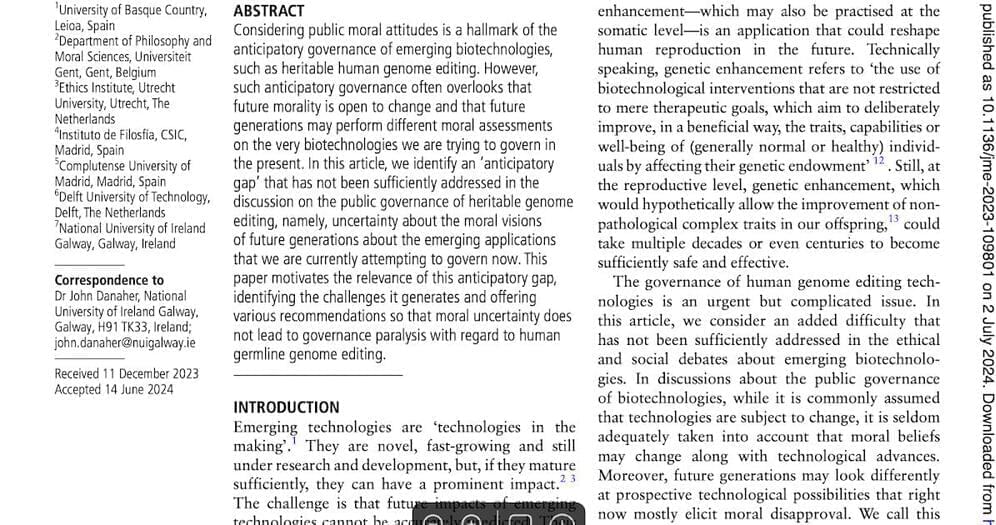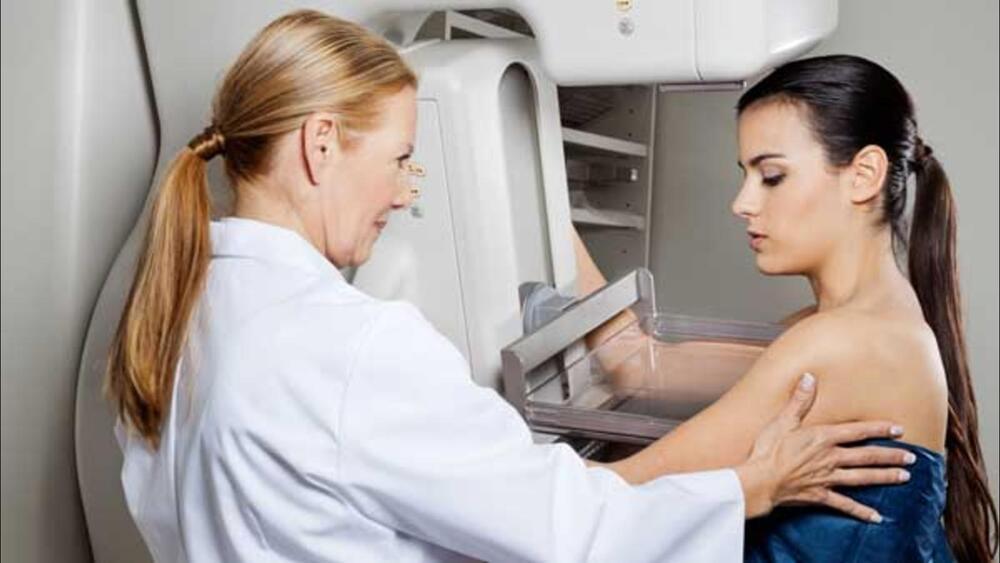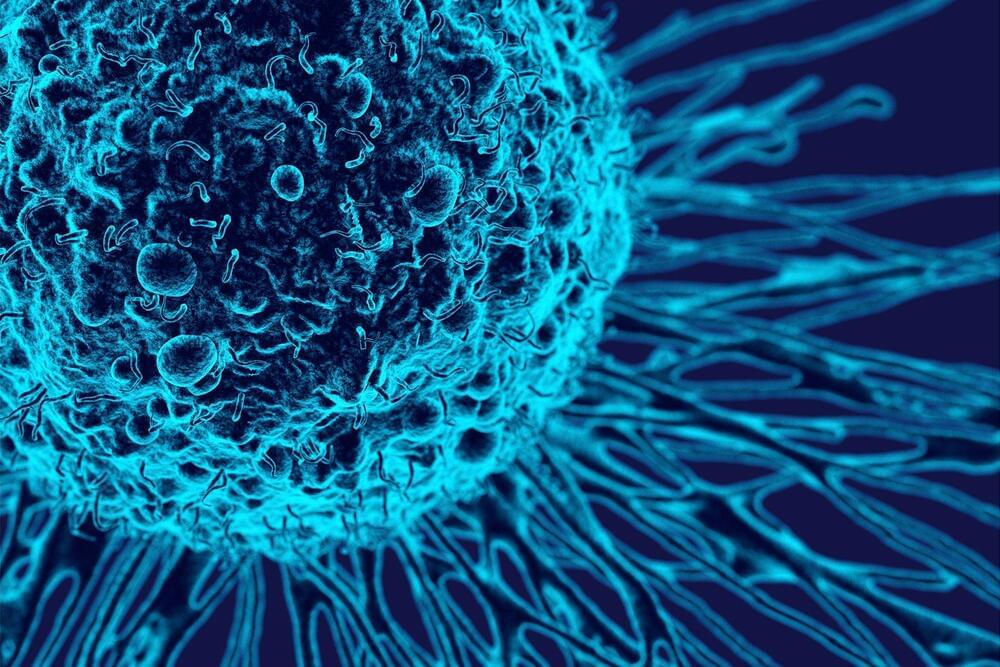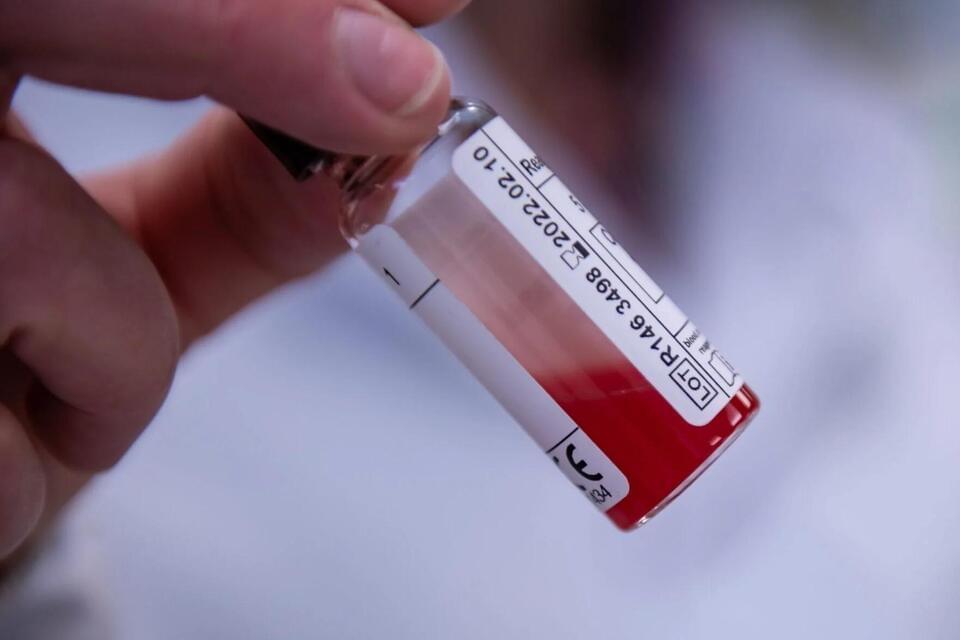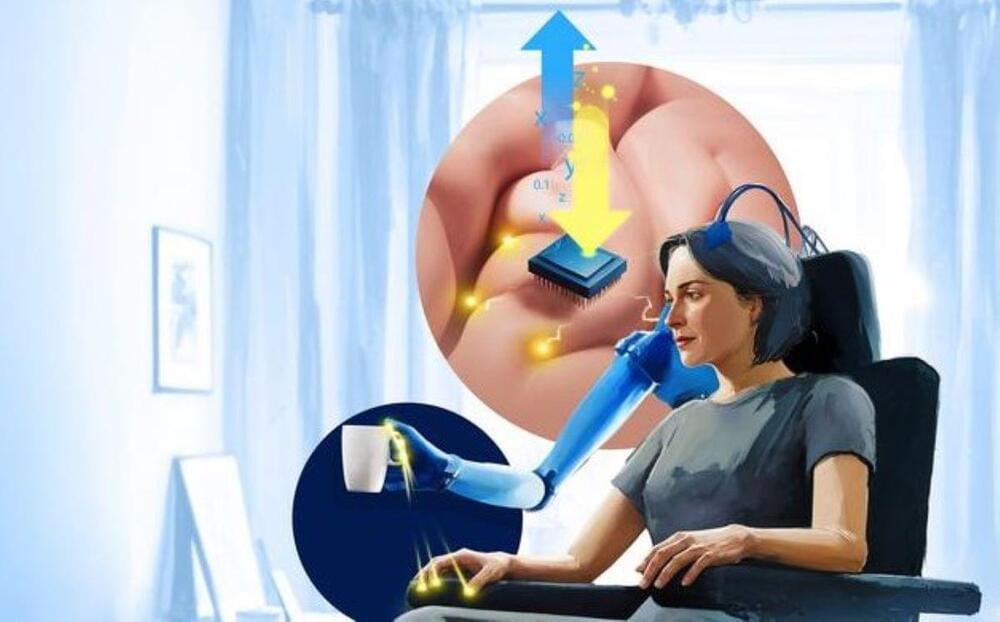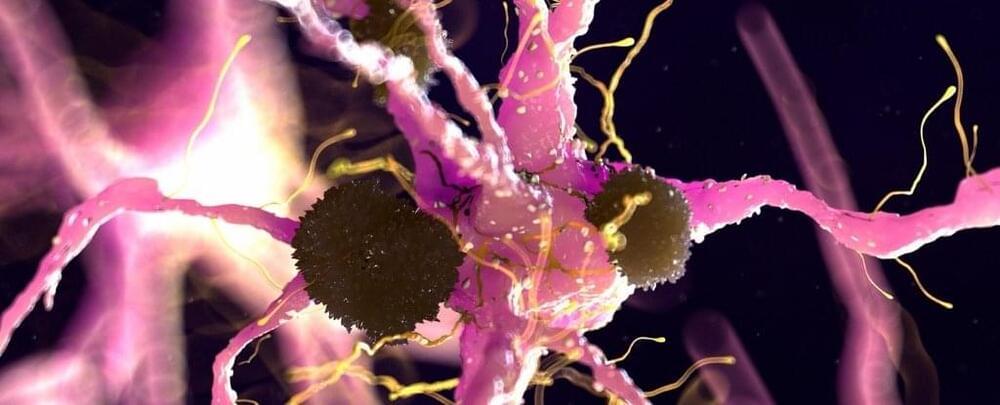Jan 21, 2025
Mind the Anticipatory Gap: Genome Editing, Value Change and Governance
Posted by Dan Breeden in categories: biotech/medical, ethics, governance, mobile phones
I was recently a co-author on a paper about anticipatory governance and genome editing. The lead author was Jon Rueda, and the others were Seppe Segers, Jeroen Hopster, Belén Liedo, and Samuela Marchiori. It’s available open access here on the Journal of Medical Ethics website. There is a short (900 word) summary available on the JME blog. Here’s a quick teaser for it:
Transformative emerging technologies pose a governance challenge. Back in 1980, a little-known academic at the University of Aston in the UK, called David Collingridge, identified the dilemma that has come to define this challenge: the control dilemma (also known as the ‘Collingridge Dilemma’). The dilemma states that, for any emerging technology, we face a trade-off between our knowledge of its impact and our ability to control it. Early on, we know little about it, but it is relatively easy to control. Later, as we learn more, it becomes harder to control. This is because technologies tend to diffuse throughout society and become embedded in social processes and institutions. Think about our recent history with smartphones. When Steve Jobs announced the iPhone back in 2007, we didn’t know just how pervasive and all-consuming this device would become. Now we do but it is hard to put the genie back in the bottle (as some would like to do).
The field of anticipatory governance tries to address the control dilemma. It aims to carefully manage the rollout of an emerging technology so as to avoid the problem of losing control just as we learn more about the effects of the technology. Anticipatory governance has become popular in the world of responsible innovation and design. In the field of bioethics, approaches to anticipatory governance often try to anticipate future technical realities, ethical concerns, and incorporate differing public opinion about a technology. But there is a ‘gap’ in current approaches to anticipatory governance.
